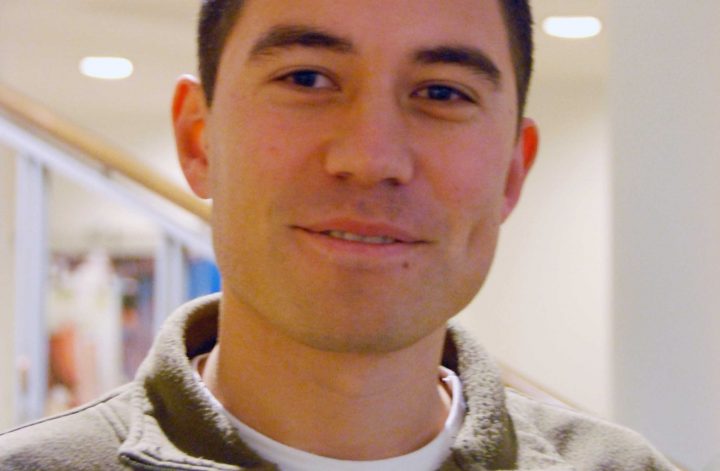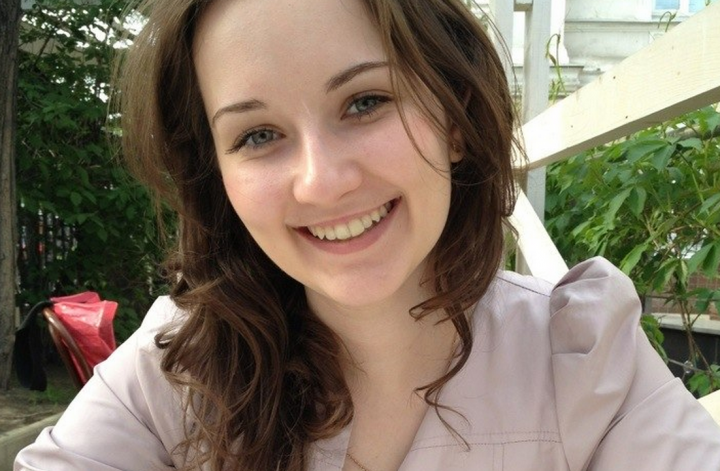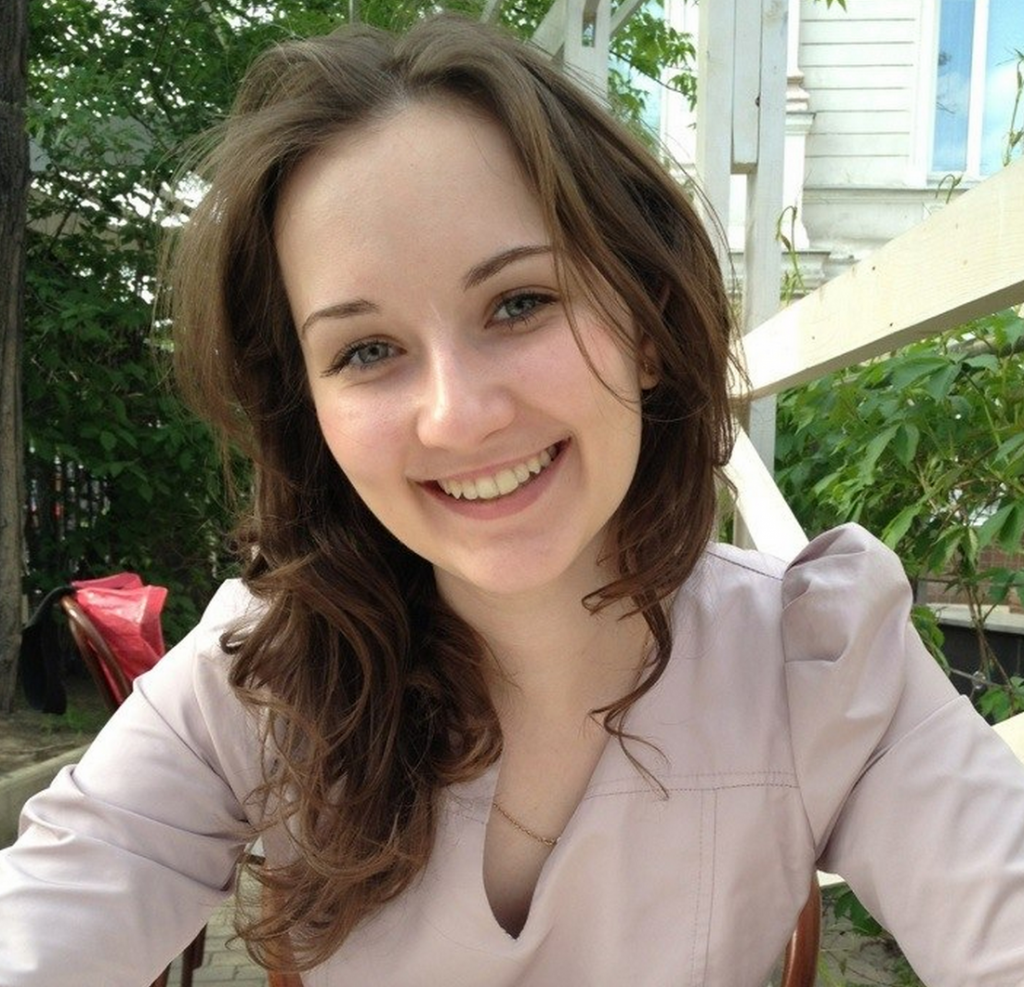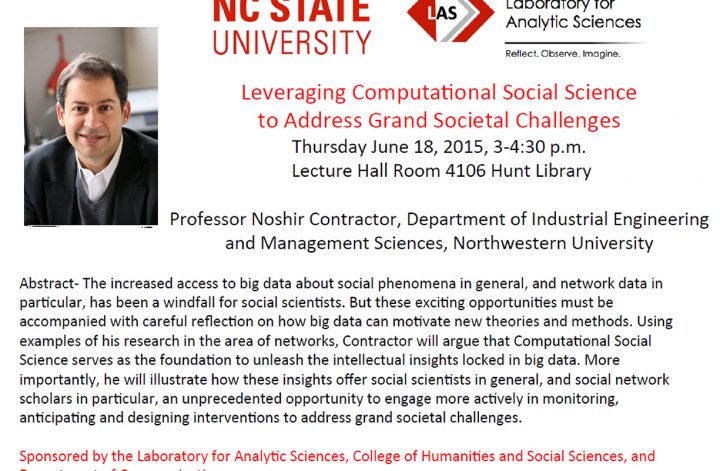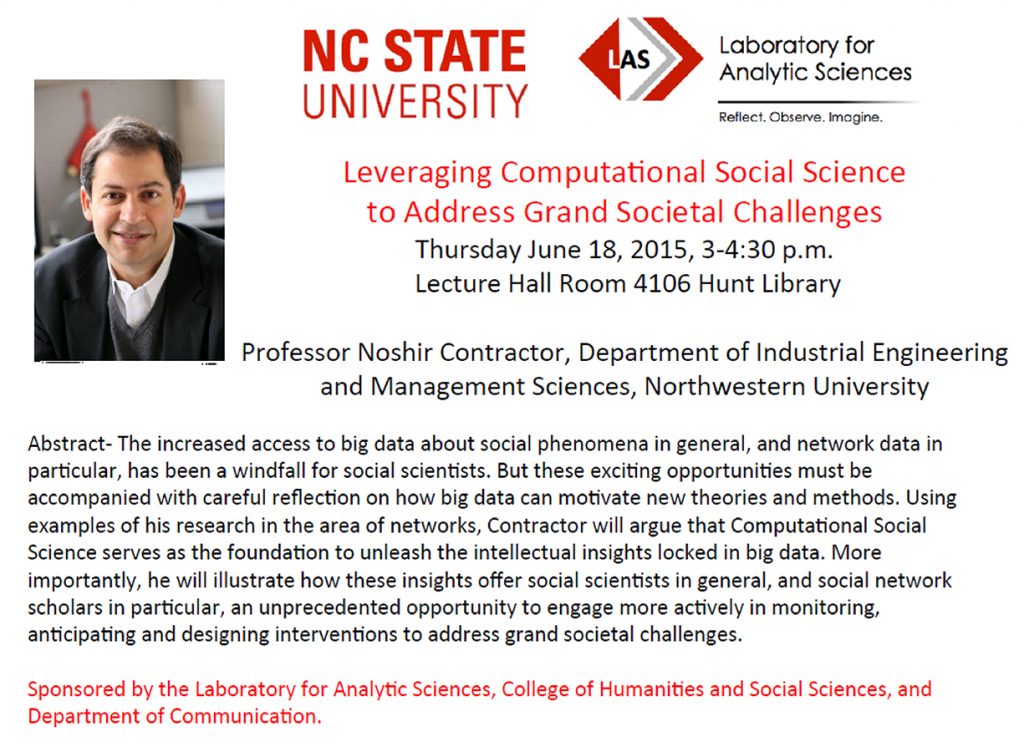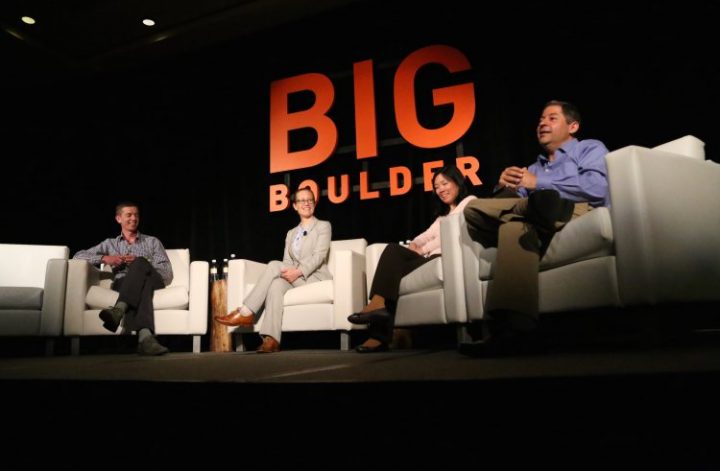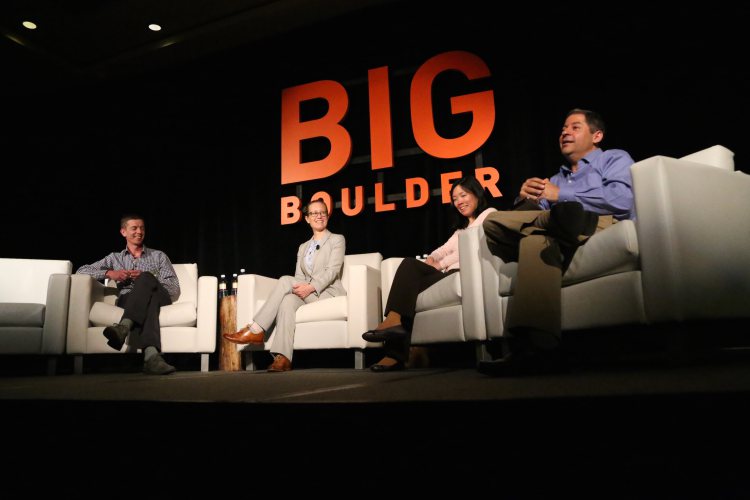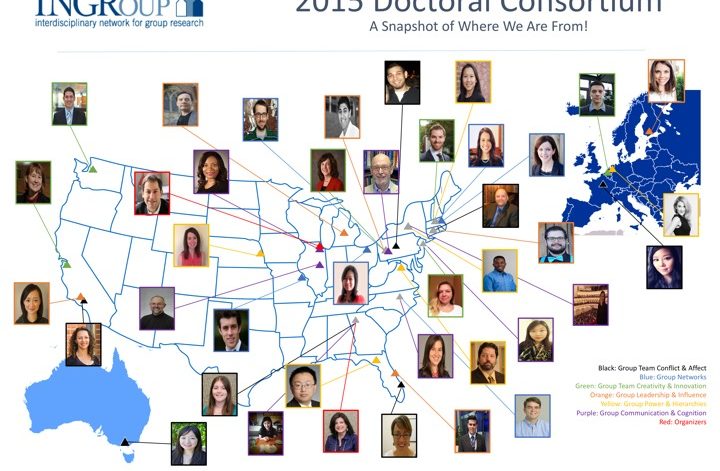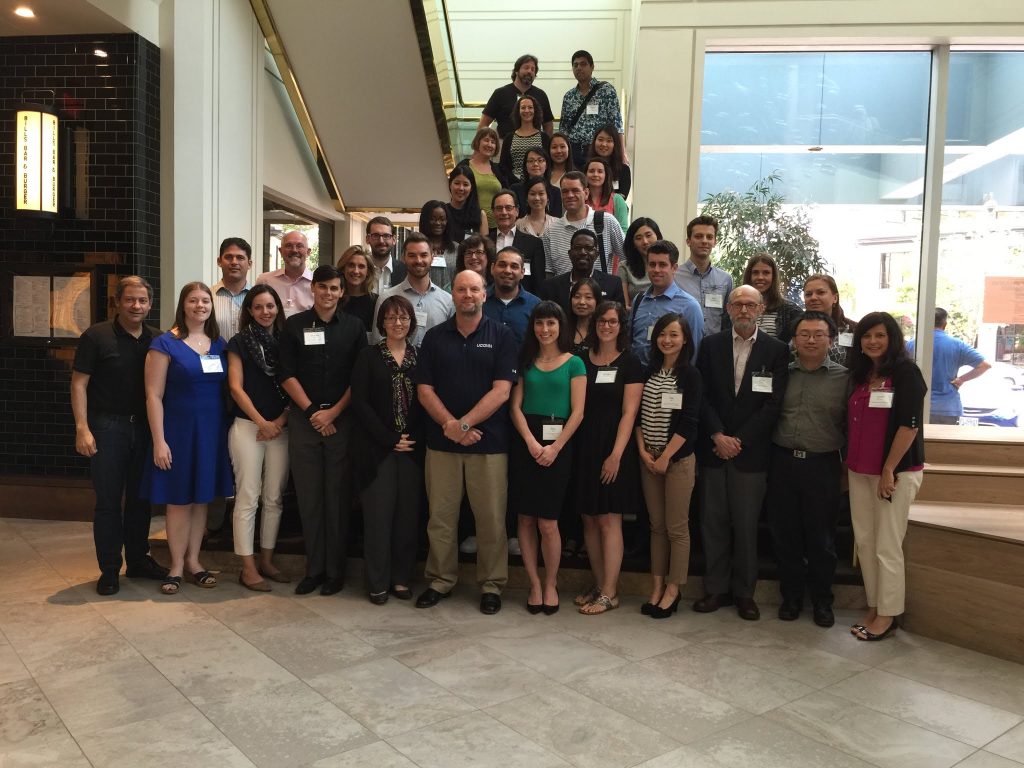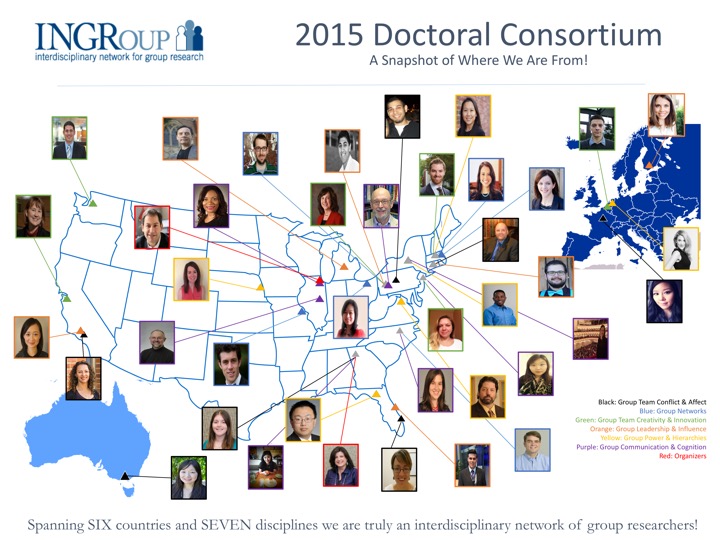SONIC Members presented at The International Sunbelt Social Network Conference in Brighton, UK on June 23– June 28, 2015. The dates, times, and locations, as well as abstracts for select presentations, can be found below.

Abstracts
A Multi-Relational Event Model for Understanding Channel Selection
Aaron Schecter & Noshir Contractor
Relationships are inherently dynamic; they start, stop, and change over time. As a consequence, the notion of a binary link between two individuals fails to capture the richness and complexity of interpersonal relations. Longitudinal network analysis, specifically actor-oriented models, determine how individuals craft their networks over time as a result of some underlying objective function. However, this approach only utilizes discrete observations of static networks. Given the rise of time-stamped event data, more granular statistical methods are required to leverage the information gained when every interaction can be observed. The relational event framework remedies that methodological gap. This model is a statistical tool for analyzing sequences of dyadic interactions and identifying emergent drivers of interpersonal action. While relationships cannot be viewed as static entities, they also cannot be viewed as one dimensional. Rather, interactions can be classified by their content, their affect, their method of delivery, or numerous other categories. While the original model was derived to handle multiple classes of relations, there has not been significant investigation into the implementation of a multi-relational event method or the resulting theoretical implications. In this study we address this issue through an explicit formulation of the relational event model which incorporates multiple types of dyadic actions. Additionally, we advance the notion of the multi-level sequential structural signature in the context of various relational classes. Specifically, we explain how the interplay of multiple dynamic interpersonal processes can predict future behaviors of any type. Our approach will be illustrated in the context of channel selection within a multi-team system (MTS) communication network. This study will make use of interpersonal communications from a large-scale series of experiments; data was collected from 17 laboratory sessions simulating a multi-team system scenario, each involving 20 unique participants (340 total individuals). During the experiment, individuals were able to communicate via text, which is a low richness channel, or audio, which is a high richness channel. We posit that the sequence, direction, and timing of interactions over each communication channel can be used to predict the efficacy of a MTS. Specifically, we hypothesize that the emergent behavioral trends that drive channel selection will reflect how effectively teams coordinate internally, teams coordinate externally, and leadership is expressed.
Funded by:
Army Research Lab W911NF-09-2-0053
Leveraging Who, Whom, and How: A Social Networking Tool to Scale Up Health Innovation in India
Noshir S. Contractor, Anup Sawant, Harshad Gado, Ivan Hernandez, Leslie A. DeChurch, Michelle Shumate
In the developing world, the day a baby is born is the most dangerous of their life. The lives of a great many mothers and their newborns could be saved not with expensive treatments and equipment, but with the adoption of basic health care practices. Simple practices like hand washing – before, during, and after childbirth – could save a great many lives. The biggest obstacle to improving health care in the developing world is not cost, it is social norms. Atul Gawande called this the problem of getting “slow ideas” to spread: “…neither penalties nor incentives achieve what we’re really after: a system and a culture where X is what people do, day in and day out, even when no one is watching… Getting to ‘X is what we do’ means establishing X as the norm. (Gawande, 2013).” This paper discusses the design, development, and deployment of a novel social networking tool designed to hasten the spread of slow ideas through social networks. We bring the power of networks and social motives together in a recommender system, the “Influence Strategy Wizard,” to aid development workers in identifying the most pivotal influencers (i.e., whom), the people they go to for advice (i.e., who), and the influence strategies most likely to activate their social motives (i.e., how) to spread slow ideas needed to improve health care. Prior research suggests that people are highly influenced by those in their immediate networks. Therefore, to better implement health innovations, it is essential to identify central individuals who are best positioned to influence a large segment of people. Complementing the influence of networks, psychological research suggests that people are influenced by messages that address universal motivations such as the desire to be accurate or affiliate with people. The current project draws on these insights to build a tool that helps health workers identify the key influencers who are best able to scale up family health innovations throughout the districts of Bihar, as well as the strategies to influence them. We interviewed 9,799 government health employees, 146 TSU personnel, and 57 development partners throughout 15 districts in Bihar, India. Respondents were asked whom they go to for advice about maternal & newborn health, improving nutrition, increasing infant immunizations, encouraging family planning, data-driven management plans, and training practices for family and health workers. Additionally, we surveyed government employees on their social motives so that targeted persuasion strategies could be built into the Wizard. From these networks, we can calculate who are the most central people in other’s advice networks for various innovations. We embed this data in the Wizard dashboard, accessible from any web-enabled device. Development workers select the type of innovation they want to implement, and who they want influence. If they are unsure of whom to influence, the Wizard recommends one. The tool then displays the network pathway and mechanism – who, whom, and how – needed to gain support for the innovation.
Funded by:
Bill and Melinda Gates Foundation Global Development Grant 21640
Bill and Melinda Gates Foundation Family Health Division Grant 1084322
Detection of Perfunctory Citations: Nuancing Impact Factors and Weighting Citation Networks to Account for Citation Heterogeneity
Ryan Whalen, Yun Huang, Anup Sawant, Noshir Contractor
Citations and citation networks provide valuable information and insight, helping us understand journal impact (Glänzel & Moed, 2002), scholarly productivity (McNutt, 2014), and knowledge structure and flow (Börner, Penumarthy, Meiss, & Ke, 2013). However, their use is complicated by the difficulty in distinguishing between meaningful and less-meaningful citations. This paper proposes a method utilizing full text of citing & cited papers, and keyword matching to provide more meaningful measures of citation weight and article impact. While there are many reasons to include citations to previous work, perhaps the greatest distinction in citation types is between “perfunctory” or “ritual” citations and citations that engage more deeply with the cited work. Empirical work shows that perfunctory citations make up a significant portion of all citations, with estimates ranging from 10–50% (Bornmann & Hans-Dieter, 2008). Traditional citation analyses largely ignore the strength of citation ties ignoring distinctions between perfunctory and substantive citations. We propose a method of semantic citation analysis to help address this lack of precision in citation studies. This method relies on traditional methods of citation analysis, but also takes into account the content of the cited and citing article via keyword extraction and comparison. Our method proceeds in four steps: first, we identify the universe of papers to be analyzed. For this early-stage study we examine all articles appearing in the journal Social Networks. Second, we identify the citation network between the articles in the dataset. At this stage we take into account not only which papers cite which papers, but also the text of the paragraph that the citation appears in. Third, we extract keywords from each of the papers in the study and associate those keywords with their origin paragraphs. We use multiple keyword extraction methods, including automated algorithmic extraction and by matching with a set of keywords appearing in the Web of Science. Finally, we use the keyword similarity between citing and cited papers to compute four novel metrics of citation weight and impact factor. These measures are calculated by weighting terms according to the tf-idf and calculating cosine similarity between Our four measures allow us to distinguish between impact factor and citation weights in accordance with how much similarity there is between the citing and cited articles’ content, helping us detect perfunctory citations and weight them accordingly. The measures include: Impact factor accounting for from content similarity between cited paper and citing paper; Impact factor accounting for from similarity between cited papers and their citing paragraphs; Citation weighting based on paper similarity; and Citation weighting based on paper and citing paragraph similarity. Our early findings show that taking into account the text of citing/cited articles provides meaningful information that nuances citation network analyses. Our presentation will more fully describe our data and methods, the metrics we use, and our results.
Funded by:
National Science Foundation CNS-1211375
Army Research Lab W911NF-09-2-0053
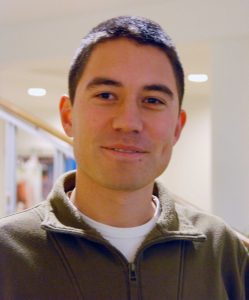 SONIC Lab is proud to welcome Ludo Waltman, who will present a talk on Wednesday, September 9th, 2015 at 10:00 AM in the SONIC Lab in the Frances Searle Building 1-459. All are welcome to attend. To schedule a one-on-one meeting with Dr. Waltman please schedule a time here. To sign up for his workshop, click here. Please contact Eric Forbush with any questions or comments.
SONIC Lab is proud to welcome Ludo Waltman, who will present a talk on Wednesday, September 9th, 2015 at 10:00 AM in the SONIC Lab in the Frances Searle Building 1-459. All are welcome to attend. To schedule a one-on-one meeting with Dr. Waltman please schedule a time here. To sign up for his workshop, click here. Please contact Eric Forbush with any questions or comments.
